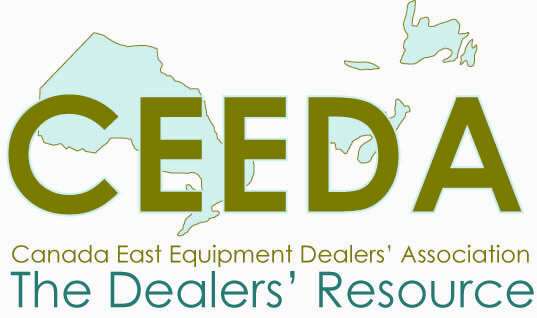Jerry Martens, CEEDA chairman, highlights current challenges in the ag industry and how these challenges could be overcome
By Jennifer Jackson
Agricultural industry optimism is a current theme behind the scenes of many Ontario farm equipment dealerships. The Canada East Equipment Dealers’ Association (CEEDA) represents and supports farm equipment dealerships across Ontario and the Maritimes. The Association supports its members through all aspects of business, including navigating government regulations and industry issues.
CEEDA held a dealer forum Jan. 25 and 26, with the theme Climb Beyond Your Next Summits. The event gathered some 100 industry members to discuss current industry trends and what the future may hold for equipment dealers and the industry more generally.
Farms.com had the opportunity to speak with Jerry Martens, chairman of CEEDA, to discuss industry challenges and growth going forward.

(Photo source: CEEDA.ca)
Farms.com (Farms): Can you tell us more about CEEDA?
Jerry Martens (JM): We are the voice for (dealerships). We (handle) any issues coming forward from dealers (working around) legislation, dealing with manufacturer innovations or (general) operations of the business. We try to help dealers (make) their (business) systems work (and, overall,) make their dealerships work like fine-tuned machines.
Farms: How many dealerships does CEEDA represent?
JM: We have over 200 dealers in the association.
Farms: What are some of the biggest challenges going forward for dealers?
JM: (A big) part of running any dealership is costs – (especially) as we get more government red tape coming out. (We have to) deal with different permits and being able to get proper legislation for dealing with our customers. There’s always (legislative) changes happening – we (need to be) making sure we are aware of (the changes), but also … we would like to be more involved in the implementation and development of laws. (With more involvement), we can have an (effect) on those laws when they come out.
Hydro rates, I think, (are) going to affect our customers and also affect operations of businesses. That’s an area of concern I think everyone in Ontario has – not (just) equipment dealers.
Also, (dealerships are having trouble) hiring and finding good help. (We need to be) making sure our colleges and universities are training people for the industry so that we can have the (workers) we need in order to maintain and service the products we sell. (Labour is) always a difficulty among the equipment dealers – we’re not necessarily a ‘pizzazz’ business, (we need to be) finding ways to attract (workers).
If anything … the biggest (attraction) is that every day is something different. It’s not a constant (environment) – its always changing, always new.
(Also, another big positive is) the customers. Who can find better customers than farmers?
Farms: What may the future hold for dealers and equipment?
JM: I look at where we are today and technology is constantly increasing. With technology (comes) productivity and lifestyle changes. I look forward to 2017 being a growing year and increasing sales amongst our dealers – mainly because of the fact that we are in a good economy in Ontario. While commodity prices may have been a little bit lower, there’s opportunity in the livestock end.
Also the technology (is) decreasing cost and increasing profitability on the farm – I believe (this) is going to drive the market forward.